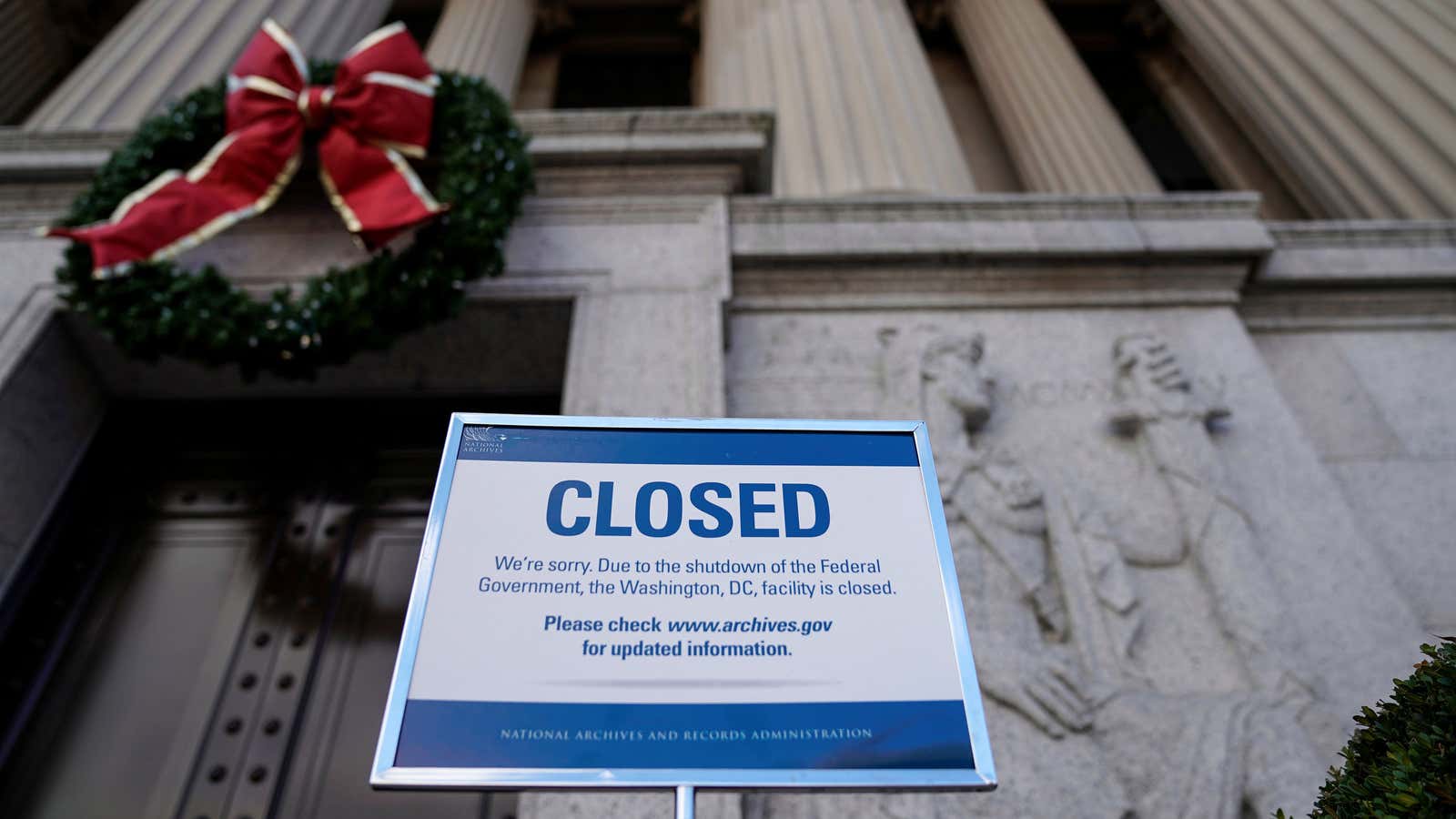It’s being called the 2018 equivalent to “let them eat cake.” Almost a week into the US government shutdown, the federal office of personnel management finally has some help for their furloughed employees, who now face an indefinite period without pay.
The office has tweeted out “sample letters you may use as a guide when working with your creditors during this furlough. If you need legal advice please consult with your personal attorney.”
Here’s a look at the letters:
As many have pointed out, it’s perverse to assume that government workers will have a personal attorney on hand–not to mention the means to pay them for a “consultation” while their own pay is suspended. As of 2012, the average government employee earned $51,340 per year—putting them roughly in the top quarter of American employees. It’s a good salary, yet hardly one that could readily absorb unexpected legal costs during a time of scarcity.
The letters themselves are fine, if ineffectual. It’s hard to imagine a landlord readily offering tenants “a temporary reduction” in rent, whatever the mitigating circumstances. More than that, expecting federal employees to do painting or carpentry work to make up the difference is laughable—and incredibly ableist. Creditors and mortgage lenders may allow federal employees to reduce their payments, but it’s all but certain to come at a cost further down the track.
Of course, not all federal employees will be puzzling over their family expense spreadsheets in the post-holiday lull. As Vox reports, US senators are getting paid during the shutdown (and so won’t need to call their personal attorney). House members are also safe, even as roughly 800,000 government employees will have to wait out the storm to receive backpay.
For contractors, it’ll be even worse: Up to 2,000 federal subcontractors who help feed workers, clean bathrooms and work in building security won’t just be off work—they won’t see a dime of their usual pay, according to 32BJ SEIU, a labor union that represents many of them.
In short, those responsible for the shutdown won’t see its effects on their own bottom line—while those with no power to change it must figure out how to make rent, pay off credit-card balances, and feed their families.
Let’s hope those letters really work.
